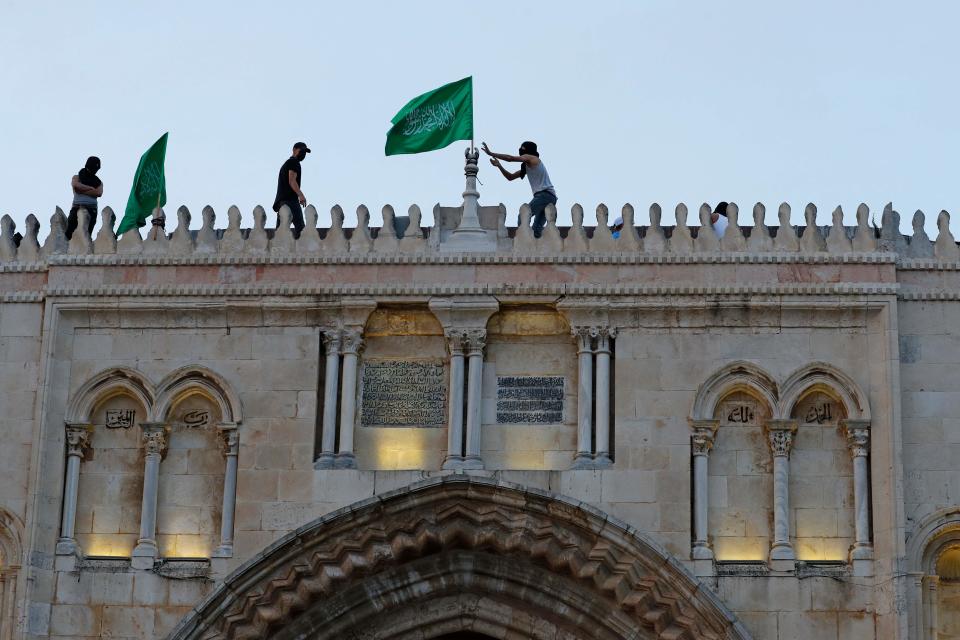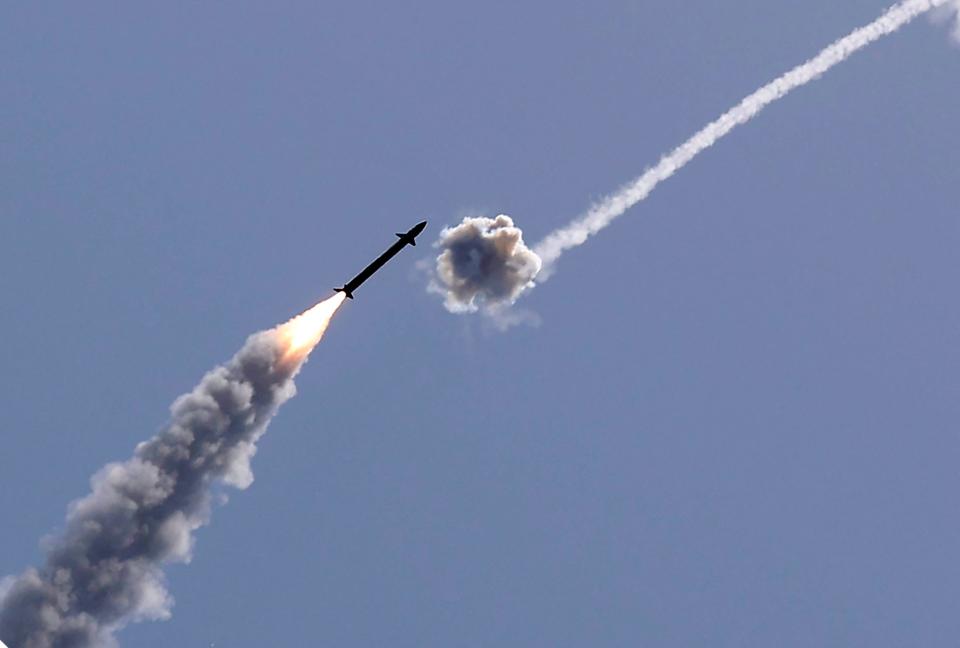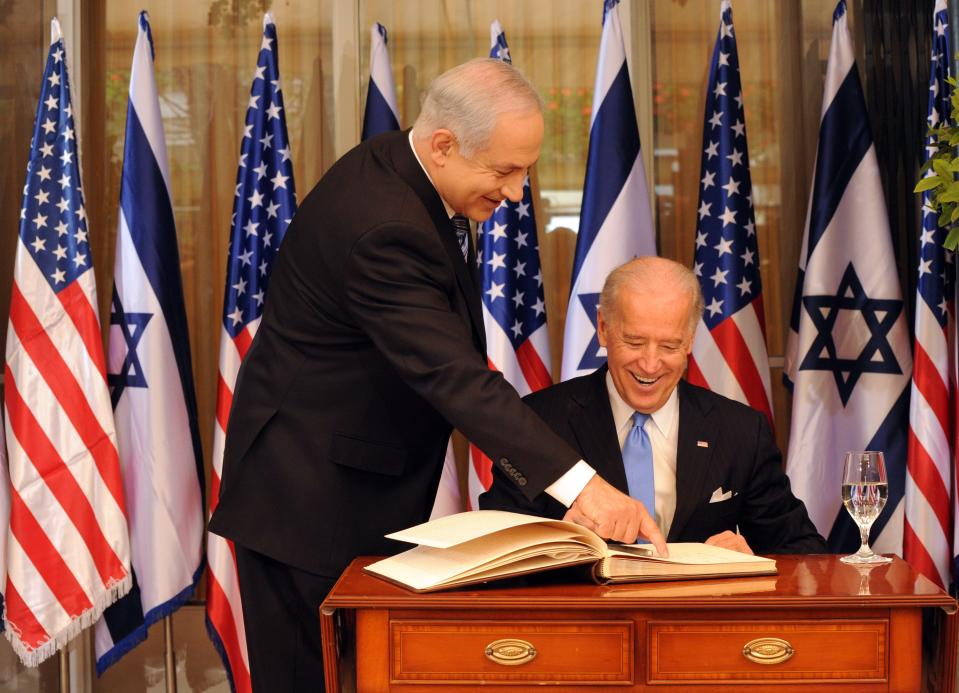Key players in the Israel-Palestinian conflict and why peace remains elusive in Gaza
WASHINGTON – President Joe Biden is under mounting pressure to help end the deadly conflict between Israel and Hamas, the militant group that controls the Gaza Strip. In a week of airstrikes and rocket attacks, at least 212 Palestinians and 10 Israelis have been killed.
But while the United States has significant leverage in the region and has long sought to broker a peace deal between Israel and the Palestinians, the White House is not the most important player right now.
Here's a look at the roles and motivations of those engaged in the military confrontation – and those trying to end it.
Hamas

Hamas is a militant Islamic group that does not recognize Israel's right to exist. It was started in 1987 by a Palestinian cleric, and since 2007, Hamas has controlled Gaza, a small patch of land bordering the Mediterranean Sea and home to about 2 million Palestinians.
The United States and the European Union consider Hamas a terrorist organization. Hamas' military tactics against Israel have shifted over the years from plotting suicide bombings to amassing an arsenal of rockets of varying accuracy.
The group has long been opposed to peace talks between Israel and the Palestine Liberation Organization, the umbrella political organization that runs the West Bank with the Fatah Movement. Hamas condemned the 1993 Oslo Accords, under which the Palestinians gained a measure of governing authority over parts of the West Bank and Gaza, while the PLO formally recognized Israel.
In the current conflict, Israel’s military says Hamas has fired more than 3,000 rockets at civilian targets in Israel. The Israel Defense Forces say they have intercepted about 90% of those with Israel's sophisticated Iron Dome missile defense system.

Hamas, which has a political wing as well as a military one, is trying to capitalize on the disarray in Palestinian politics and to "get a leg up on Fatah," Michael Koplow of the Israel Policy Forum, wrote in an analysis. Fatah is a rival Palestinian political party operating in the West Bank and led by Palestinian President Mahmoud Abbas.
Israeli Prime Minister Benjamin Netanyahu
Israeli Prime Minister Benjamin Netanyahu is a hard-line leader who has aggressively promoted Jewish settlements in the West Bank and other Palestinian enclaves.

Critics say his policies helped set the stage for the current conflict by creating a sense of hopelessness among Palestinians who want their own independent state. One spark for the confrontation was an effort by Jewish settlers to evict Palestinian families from their homes in East Jerusalem.
Netanyahu, Israel's longest-serving prime minister, has been unable to assemble a governing coalition after four successive elections in which the Israeli electorate declined to give his right-wing Likud party a clear majority. The Israeli leader has been scrambling to stay in power in part because he faces a corruption trial and has been seeking immunity from Israel's parliament.
Jon Alterman, director of the Middle East Program at the Center for Strategic and International Studies, said that while “everything (Netanyahu) does is politically calculated,” he does not believe the Israeli leader is using the conflict to distract from his own political problems.
But it is having that effect nonetheless: A bid from rival factions to assemble a governing majority collapsed when the violence erupted. At least one of the rival factions had planned to enter into a coalition that included, for the first time in Israel's history, an Arab Israeli political party.
Biden and the US

The U.S. considers Israel its most important ally in the Middle East, and it sends more than $3 billion a year in security assistance to Israel.
Critics have pounded Biden for his handling of the conflict, with many saying his administration has not prioritized Israeli-Palestinian issues and missed several opportunities to intervene before it became a military confrontation.
Previous presidents, from Bill Clinton to Barack Obama, have appointed high-profile envoys to try to broker a peace deal between the Israelis and Palestinians. Former President Donald Trump tasked his son-in-law and top adviser Jared Kushner to develop what they hoped would be a breakthrough peace proposal.
But those efforts have all failed, and some believe Biden did not want to devote precious foreign policy capital on a conflict that has frustrated even the most seasoned diplomats.
"What he wants to avoid, above all, is a fight with Israel that could prove politically costly at home," Peter Beinart, editor at large of left-leaning magazine Jewish Currents, wrote in an essay last week. Beinart noted that when the conflict erupted, the administration sent a midlevel envoy to the region to help mediate.
Biden’s national security advisers say he has been deeply engaged. On Monday, Biden expressed support for a cease-fire in a call with Netanyahu, according to a White House readout. Biden has spoken with Netanyahu several times since the violence erupted, and he spoke with Abbas over the weekend. The U.S. does not have any lines of communications with Hamas because of its status as a designated terrorist group.
Martin Indyk, a former U.S. special envoy for Israeli-Palestinian negotiations, says Biden can't solve the crisis, in part because both Hamas and Israel want to preserve the status quo.
"Both sides’ objectives in this round are strictly limited," Indyk wrote in a Foreign Affairs op-ed May 14. "Hamas hopes to enhance its standing among Palestinians; Israel hopes to reestablish its deterrence against Hamas’s attacks on its citizens. Neither side is interested in having the United States broker a two-state solution."
But he said Biden cannot ignore the conflict.
"The Biden administration will need to manage the conflict in a way that helps create a political horizon for the Palestinians," he said, which means pushing Israel to freeze Israeli settlements and pressure Abbas to reschedule planned elections.
Egypt, Qatar and the United Nations
Soon after the fighting began, the Egyptian government sent mediators to try to broker a cease-fire, and many see Cairo's role as pivotal.
"The only ones who have real leverage on Hamas right now are the Egyptians," Dennis Ross, a former U.S. diplomat who worked for years on the Middle East peace process, told CNN last week.
He noted that Egypt, which shares a border with Gaza, has helped broker the past four cease-fires in the region, including in 2014.
"They're in a position where they go to Hamas and they can say, 'We can use our influence with the Israelis as well, but if you're not responsive to us, don't expect us to save you from the Israelis and don't expect us to open the border,'" Ross said.
Qatar and United Nations officials also are trying to broker a truce. But the talks have faltered.
Hamas’ top leader, Ismail Haniyeh, told The Associated Press that the group has been contacted by the United Nations, Russia, Egypt and Qatar but “will not accept a solution that is not up to the sacrifices of the Palestinian people."
Netanyahu has not shown interest in a cease-fire, saying Israel hasn't yet achieved its military objectives.
"We're trying to degrade Hamas's terrorist abilities and to degrade their will to do this again," he said in an interview on CBS's "Face the Nation."
Indyk said the Egyptians and other players eventually will bring about a truce, but he offered a grim view of what would follow.
"Both sides bury their dead, clear the rubble, and go back to business as usual" while the Israel Defense Forces and Hamas prepare for the next round, he wrote. "The Biden administration’s approach so far suggests that Washington will be comfortable accepting this unhappy ending."
This article originally appeared on USA TODAY: Israel, Hamas, Netanyahu and Biden: Key players in the Gaza conflict

 Yahoo Movies
Yahoo Movies 